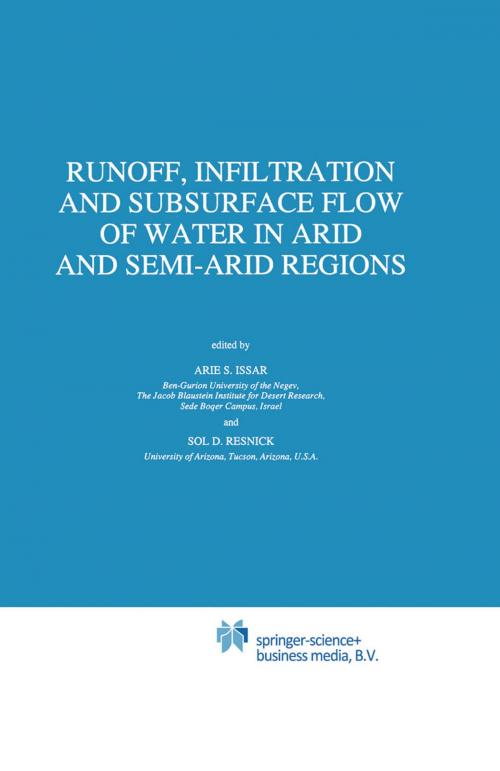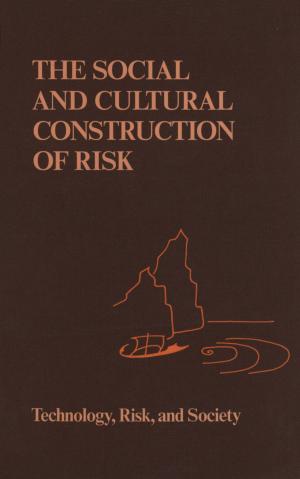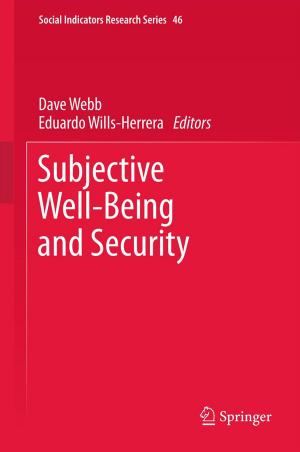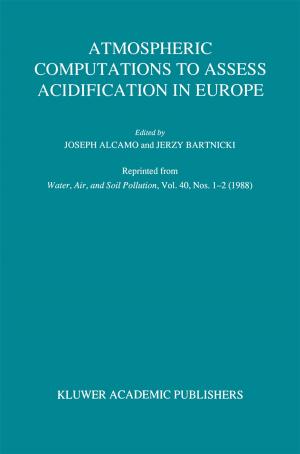Runoff, Infiltration and Subsurface Flow of Water in Arid and Semi-Arid Regions
Nonfiction, Science & Nature, Science, Earth Sciences| Author: | ISBN: | 9789401729291 | |
| Publisher: | Springer Netherlands | Publication: | June 29, 2013 |
| Imprint: | Springer | Language: | English |
| Author: | |
| ISBN: | 9789401729291 |
| Publisher: | Springer Netherlands |
| Publication: | June 29, 2013 |
| Imprint: | Springer |
| Language: | English |
Arid and semi-arid regions can be defined as environments in which water is the limit ing factor for bio-systems. This means that survival of life in these regions involves a constant struggle to obtain this limited commodity and draw the maximum benefit out of it. However, despite the difficulties for plants, animals, and man to live in, these regions, they are being utilized more and more because of the pressure of world population growth. This is expressed in the expansion of agricultural activities in desert lands as well as by the formation and rapid growth of urban and industrial centers. These trends result in a growing demand for water on the one hand, and the disposal of vast amounts of waste water, as well as other types of refuse, on the other. Meeting the first demand, namely, supplying water to the agricultural communities and urban centers, involves, in many instances, the over-exploitation and misuse of nat ural water resources. The surplus of waste water, sometimes highly loaded with toxic compounds, is likely to cause irreversible damage to the environment. The geoscientists and engineers face a challenge on two conflicting fronts. Success on one front, namely, in answering the full demand for water, may lead to an increase in the pollution of the environment by waste water.
Arid and semi-arid regions can be defined as environments in which water is the limit ing factor for bio-systems. This means that survival of life in these regions involves a constant struggle to obtain this limited commodity and draw the maximum benefit out of it. However, despite the difficulties for plants, animals, and man to live in, these regions, they are being utilized more and more because of the pressure of world population growth. This is expressed in the expansion of agricultural activities in desert lands as well as by the formation and rapid growth of urban and industrial centers. These trends result in a growing demand for water on the one hand, and the disposal of vast amounts of waste water, as well as other types of refuse, on the other. Meeting the first demand, namely, supplying water to the agricultural communities and urban centers, involves, in many instances, the over-exploitation and misuse of nat ural water resources. The surplus of waste water, sometimes highly loaded with toxic compounds, is likely to cause irreversible damage to the environment. The geoscientists and engineers face a challenge on two conflicting fronts. Success on one front, namely, in answering the full demand for water, may lead to an increase in the pollution of the environment by waste water.















